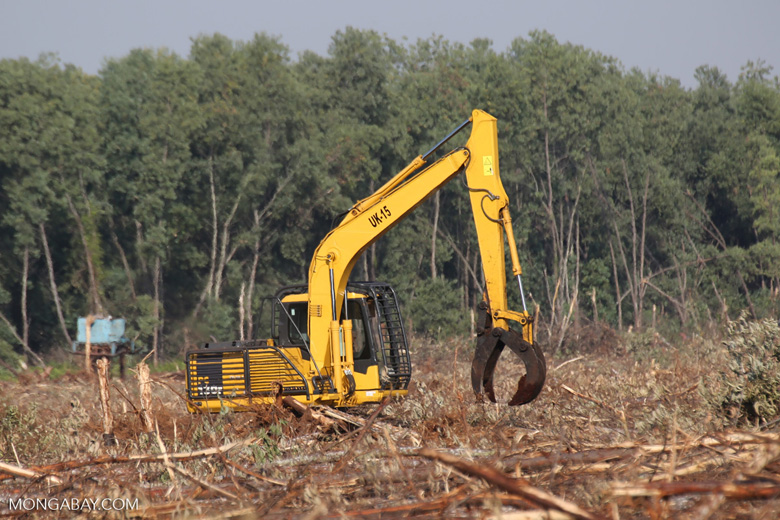- Indonesia had previously committed to reducing emissions by 26 percent by 2020 over “business as usual” levels and by 41 percent with international help.
- The new target is part of Indonesia’s Intended Nationally Determined Contribution for the upcoming COP21 summit in Paris.
- Greenpeace says Indonesia will need to revamp its policies on energy and deforestation if it hopes to meet the target.
Indonesia will cut greenhouse gas emissions by 29 percent by 2030, the environment and forestry minister announced yesterday.
The commitment is a revision of the previous target, established in 2009, to curb emissions by 26 percent by 2020 over “business as usual” levels.
Indonesia is a leading carbon polluter, but unlike the U.S. and China, most of its emissions come from forest destruction and degradation of peatlands, a marshy material that stores huge amounts of carbon.
The new target is part of Indonesia’s draft of its Intended Nationally Determined Contribution for the December climate negotiations in Paris, during which countries hope to hammer out a binding international agreement to reduce emissions globally.
Greenpeace called on Indonesia to clarify how it would reach the new target.
“The government’s target to reduce carbon emissions will never be achieved with its current energy policy, and without new measures to stop peatland and forest destruction, which contributes nearly two-thirds of the country’s emissions,” said Arif Fiyanto, Greenpeace climate and energy campaigner for Southeast Asia.
In a bid for greater energy security and sustainability, President Joko “Jokowi” Widodo intends to reduce consumption of oil, which Indonesia imports in large amounts, in favor of renewable sources.
Activists have criticized the plan, first because it relies on an abundance of new coal plants, second because a major source of renewable energy appears to be palm oil biodiesel. Oil palm expansion is a main driver of deforestation in the country.

Senior Jokowi administration officials appear to be split on the matter of deforestation, with some coming out against the Indonesia Palm Oil Pledge, a high-profile no-deforestation commitment by five giant palm oil companies, and others more supportive.
“The government has proposed no new measures to curb peatland and forest destruction, which make up 63 percent of Indonesia’s emissions,” said Yuyun Indradi, Greenpeace forest campaigner for Southeast Asia.
“It has also failed to propose reforms needed to support the private sector’s no-deforestation commitments. Progressive pulpwood and palm oil plantation companies are currently hamstrung by regulations which push them to develop all of their concessions – and stymie conservation set-asides within their concessions.”
